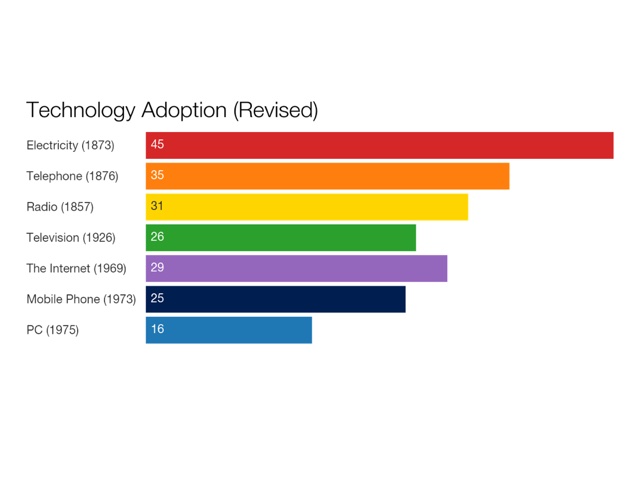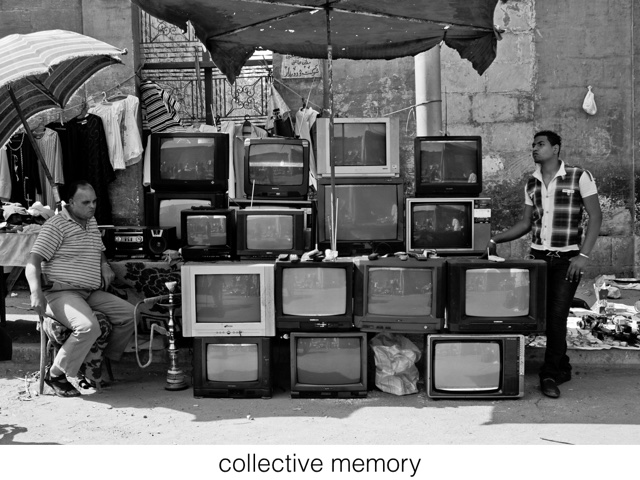Education Politics ![]()
“New Education Law: Bipartisan No More.” Republicans are made because the Department of Education issued guidelines about how ESSA should be implemented.
Via The Atlantic: “Why the Education Department’s New Equity Rule Might Not Be So Equal.”
Via the Huffington Post: “Texas Lt. Gov. Dan Patrick (R) told reporters on Tuesday that he is sending letters to every superintendent in the state advising them not to follow the Obama administration's recently issued guidance on transgender students.”
Via Education Week: “Cursive writing could be returning to Louisiana’s public school classrooms. With a 37–0 vote Tuesday, the Senate gave final legislative passage to a bill requiring public schools, including charter schools, to introduce cursive writing instruction by third grade. Instruction would have to continue through 12th grade.”
Via Chalkbeat: “Does Black Lives Matter belong in education reform? A private debate bursts into public view.”
More on the politics of accreditation in the “accreditation” section below.
Presidential Campaign Politics ![]()
Via the AP: “Donald Trump said that the federal judge presiding over a lawsuit brought by former Trump University students has an ‘absolute conflict’ in handling the case because he is ‘of Mexican heritage.’” More via The Wall Street Journal.
Lots of reporting on various court filings in the Trump University case, particularly those about the company’s “playbooks” detailing how former employees sold its course packages, targeting vulnerable populations. Via The New York Times: “Former Trump University Workers Call the School a ‘Lie’ and a ‘Scheme’ in Testimony.” Via The Atlantic: “The Art of the Swindle.” Via New York Magazine: “Trump University Told Recruiters to Target Single Parents With Hungry Kids.”
Trumpvows to re-open Trump University. We can only hope it’s as a coding bootcamp.
Education in the Courts ![]()
Via Inside Higher Ed: “Arizona Board of Regents probably violated First Amendment rights of state’s student association when it stopped collecting fees for the group, U.S. appeals court rules.”
Via NPR: “The Kansas Supreme Court has rejected lawmakers’ attempt to fix the state’s education-funding problem. The court has said that schools will have to close if the Legislature does not correct inequity in the system by the end of June.” Read that last sentence very carefully: schools in Kansas will have to close. Via The New York Times: “Kansas Parents Worry Schools Are Slipping Amid Budget Battles.”
In other Kansas news, this one via the AP: “Republican-led Kansas will challenge in court the Obama administration’s directive that public schools allow transgender students to use the restroom that matches their gender identity, the state’s attorney general said Wednesday, although he has not yet decided whether to join a lawsuit by 11 other states or sue separately.” Nice priorities you have here, Kansas.
Via Politico: “The U.S. Court of Appeals for the District of Columbia refused to rehear for-profit colleges’ legal challenge to the Obama administration’s ‘gainful employment’ regulation.”
More on the Trump University lawsuit in the poop emoji section above.
Testing, Testing… ![]()
“Most of the questions from New York’s 2016 state tests are now public,” Chalkbeat reports.
Via Education Week: “New Test Pitched As Alternative to Common Core-Focused High School Exams.” “Word about the Vector Assessment of Readiness for College, or Vector A.R.C., has been making its way through the conservative blogosphere,” writes Catherine Gewertz, “which is pitching it as a tool for families who don’t want their children taking college admissions tests that reflect the Common Core State Standards.”
Via Education Dive: “Fifth graders from Tennessee’s Nolan Elementary have created a campaign to convince the Tennessee Department of Education and Gov. Bill Haslam that the time they spend preparing for and taking standardized tests would be better spent doing hands-on learning activities.”
More in the sports section below on falsifying college athletes’ test scores.
Online Education (The Once and Future “MOOC”) ![]()
“The Future of MOOCs Might Not Be Free,” suggests Education Week’s Market Brief with an observation that many of us made back in 2012.
“The Great Courses” are available on a medium other than VCR or cassette and The New York Times is on it.
The Once and Future “For-Profit Higher Ed” ![]()
“The Average Student at a For-Profit College Was Worse Off After Attending.” More on this study in the research section below.
The Department of Education announced a new monitor to oversee the Zenith Education Group, which bought Corinthian Colleges’ campuses. The department had fired the previous law firm in charge of this after finding that there were conflicts of interest in Zenith’s relationship with it.
Via Inside Higher Ed: “Iowa’s Department of Education notified Bridgepoint Education– the parent company of Ashford University– that the state’s approving agency would no longer approve the institution’s programs for G.I. Bill benefits after June 30.”
Via Politico: “The Education Department is once again pushing back the timing of an interim step in its implementation of the Obama administration’s ’gainful employment’ rule, which aims at cracking down on for-profit colleges. The department says it won’t start the 45-day clock on data challenges from colleges (initially slated to begin today) until ‘later in June.’”
Via Techcrunch: “Flatiron School teams up with Re:Coded to help Syrian refugees learn to code.”
More on various lawsuits against for-profits in the courts section above.
Meanwhile on Campus ![]()
Via The LA TImes: “The gunman who killed a UCLA professor before committing suicide on campus Wednesday left behind a ‘kill list’ and is suspected in the shooting death of a woman in Minnesota, authorities said.”
UC Davis suffered a week-long LMS outage, and lots of folks had to weigh in with their thoughts on what this meant about Sakai, running one’s own infrastructure, and open source. “The end is near,” as Buzzfeed put it. Interestingly, the University of Calgary was hit with a massive malware attack, taking out email– EMAIL! – for the week and no one had a “hot take” on what this episode means for the future of that particular piece of university tech or, more broadly, schools' ability to manage their own tech infrastructure. Weird.
“Brigham Young professor told not to give fake urine to his students to drink.”
Via The Chronicle of Higher Education: “BYU Police Are Investigated for Handling of Sexual-Assault Reports.”
Via NJ.com: “[Paterson]’s school district is investigating a rap video, filled with drug references and a stripper, that was filmed at one of its high schools, officials confirmed. City native and rap superstar Fetty Wap released a music video last week for his latest single, ‘Wake Up,’ filmed at Eastside High School, according to social media posts by the rapper. The district confirmed to NJ Advance Media late Tuesday night that the video was shot at the school and that they are now investigating who allowed it.”
Via NorthJersey.com: “Kean University flouted state law and its own policies in spending $250,000 for a custom Chinese-made conference table, a state investigation has found.”
Two stories from the Willamette Week about lead in Portland’s schools: “Portland District Failed to Disclose Excessive Lead Levels at 47 School Buildings.” And “Lead in Portland Public Schools Drinking Water: Two Top Officials Placed on Leave.”
UNC system president Margaret Spellings says that UNC will not try to enforce the state’s controversial “bathroom law.”
Larry Cuban on “Integrating Technology In Classrooms: Teach To One in a Oakland Charter School.”
Via Inside Higher Ed: “Communications Experts Criticize Elsevier-Florida Pilot.”
Also via Inside Higher Ed: “Nigerian Billionaire Criticized for Gift to Lynn University.”
“Why Is a High School in One of America’s Richest Counties Still Failing?” asks The Atlantic.
Via The New York Times: “Dreams Stall as CUNY, New York City’s Engine of Mobility, Sputters.” “The Relentless Shabbiness of CUNY: What Is To Be Done?” asks Corey Robin. “CUNY On The Brink” by Ann Larson. “CUNY: canary in the coal mine for American public higher education,” says Bryan Alexander.
“MIT announces new Makerspace.”
St. Catharine College will close its doors.
Saint Xavier will close its Arizona campus.
@roywoodjr@BlackGirlNerds Graduates who stuck around for grad school. Which is probably worse than no graduates. pic.twitter.com/hi32s3S9ke
— Chris O'Connor (@ChristopOConnor) May 30, 2016
Accreditation and Certification ![]()
“Kamala Harris, the California state attorney general and Senate candidate, said the Accrediting Council for Independent Colleges and Schools‘greatly harmed Californian students and consumers’ by continuing to give the green light to a disgraced university operator all the way until its collapse in 2015,” Buzzfeed reports.
In other news about the ACICS, Buzzfeed also reports that “A college watchdog whose lax oversight has outraged a number of state attorneys general hosted a conference session this month where college administrators learned how to evade attorney general lawsuits.” (Psst. I think Kamala Harris is onto y’all.)
Via the MIT Media Lab: “What we learned from designing an academic certificates system on the blockchain.”
“Some thoughts and recommendations on the future of the Open Badges backpack and community” from Doug Belshaw.
Students at Johns Hopkins University are objecting to a plan that would end the practice of concealing the grades they received during the first semester of their freshmen year. (What’s shown on the transcript is either “satisfactory” or “unsatsifactory.”)
“Are stackable credentials now a necessity?” asks Education Dive. (Apparently the phrase “stackable credentials” means something more/different than “piecing enough credits to get a degree” because otherwise I can’t imagine why there’s be such a fuss. I mean, other than just the thrill of repeating a new buzzword, of course.)
Go, School Sports Team! ![]()
Via The New York Times: “The youngest of the billionaire Koch brothers had a dream: to found a private high school where academically gifted students of all socioeconomic backgrounds would do hands-on projects and learn by solving problems. He poured more than $75 million into building the school, the Oxbridge Academy of the Palm Beaches. But on Friday, he fired the head of school and declined to renew the contracts of the athletic director and the football coach. The moves came after a sexual harassment complaint and an internal investigation into accusations of kickbacks, grade-changing, excessive spending and violations of the rules governing high school sports.”
Via The Chronicle of Higher Education: “Ole Miss Admits Former Assistant Football Coach Helped Falsify ACT Scores.”
The latest from Baylor University’s failure to address sexual assault allegations show up in the “human resources” section below. Also, more below on research into sexual coercion among athletes.
From the HR Department ![]()
“Ken Starr Says He Will Resign as Baylor’s Chancellor.” The university’s athletics director has also resigned.
“Nancy Zimpher to Resign as SUNY Chancellor in 2017.”
“Akron’s Controversial President Will Resign Immediately.”
“A Yale professor and his wife who became targets of protests for an email about potentially offensive Halloween costumes are resigning their positions as heads of a residential community at the university,” The New York Times reports.
The American Enterprise Institute’s Andrew Kelly will become UNC’s Senior Vice President for Strategy and Policy.
Via The Guardian: “Almost 400 jobs will be scrapped at London Metropolitan University as it moves all its students from three campuses on to one.”
Via Inside Higher Ed: “Portland State Graduate Assistants Form Union.”
Also via Inside Higher Ed: “Graduate students reach an agreement with Cornell that could carve a path for them to form a union, rare among private institutions, and avoid the long court battles that have been expected.”
Via the Seattle Times: “Seattle University’s interim provost has placed Jodi Kelly, dean of the school’s Matteo Ricci College, on administrative leave amid a student protest over the college’s culture and curriculum.”
The Department of Education is hiring unpaid interns.
Amazon will share the design of its Career Choice program with other businesses, which isn’t really “open source” but sure, let’s erase all meaning and specificity out of that phrase. That’s how marketing works.
Upgrades and Downgrades ![]()
“American schools are teaching our kids how to code all wrong,” says Globaloria’s Idit Harel. I’m going to borrow her phrase “pop computing,” I think, to describe many learn-to-code products.
Zynga and NewSchools Venture Fund’s ed-tech accelerator program, co.lab, is shutting its doors.
Via Edsurge: “Try Before You Buy: Clever’s ‘Co-Pilot’ Aims to Help Schools Pilot and Purchase.”
Daniel Willingham on “Ed tech purchasing decisions.”
Franchising and the McDonalds-ization of education.
Related: “Success Academy Charter Schools Plans to Share Curriculum Online.”
Via The Baltimore Sun: “Company says it can predict whether a teacher will be good – before entering a classroom.” Riiiiight. “The four-year-old company [TeacherMatch] says that its proprietary screening tool– the Educators Professional Inventory – can accurately predict whether a prospective hire will be an effective teacher, and more specifically whether they will be able to boost students’ test scores.” Proprietary algorithms so no way third party verification, no research. But hey. This company was just acquired – more on that in “The Business of Ed-Tech” section below – so it has to be legit, right?
Via The Chronicle of Higher Education: “Remember Second Life? Its Fans Hope to Bring VR Back to the Classroom.” Michael Horn also trumpets the “Virtual Reality Disruption” this week in an article in EducationNext.
Via The New York Times: “Rhodes Scholarship Program to Expand.”
Also via The New York Times: “A Mission to Bring STEM Skills, and Robots, to Children in West Africa.”
Via Inside Higher Ed: “Private student loans could function more effectively – and be a more useful tool for helping students pay for postsecondary education – if lenders made them using criteria such as institutional quality and the likely return on a student’s investment rather than credit scores and co-signers, the authors of a new report from the American Enterprise Institute argue. The authors, Andrew P. Kelly and Kevin J. James, say that student loans made by non-government lenders – which have shrunk to under 10 percent of all loans disbursed to students – could play a more central role if they are were based more on market forces and if they were not backed by significant federal guarantees.” For what it’s worth, “market forces” have made loan startups one of the most popular areas for VC investment in recent years.
Via Techcrunch: “VetTechTrek is creating an e-learning platform to help veterans build careers in the tech industry.”
Cengagesays that for fiscal year 2016, its digital textbooks outsold its print textbooks for the first time.
Via Inside Higher Ed: “Colleges that accommodate transgender students by letting them choose preferred names and pronouns find their efforts hindered by out-of-date software and federal reporting requirements.”
Not sure why [this](How Students and Faculty Think Critically With Medium) is about Medium and not about blogging in general other than the compulsion to always promote some corporate brand.
Via Edsurge: “Three Rookie Mistakes That Edtech Entrepreneurs Make.” I’d add “knowing nothing about ed-tech history,” “knowing nothing about ed-tech research,” and “believing all the hype you hear from VCs and VC-funded publications.”
Via Techcrunch: “Y Combinator announces basic income pilot experiment in Oakland.”
from the mind of Paul Graham whose Y Combinator just announced a UBI 'expirement' on Oakland. nbd. pic.twitter.com/96UQgN50i2
— StartUpGenocider (@lginiger) June 1, 2016
(Related: “A Universal Basic Income Is a Poor Tool to Fight Poverty,” according to Eduardo Porter in The NYT.)
Funding and Acquisitions (The Business of Ed-Tech) ![]()
Udemy has raised another $60 million, this time from the South African media group Naspers (which just last month invested $15 million in the homework help site Brainly). Udemy, which offers a marketplace for online classes, has raised $173 million total. This new investment, it says, will help it expand internationally.
Learn-to-code startup Tynker has raised $7.1 million from Cervin Ventures, Felicis Ventures, New Ground Ventures, Reach Capital, Relay Ventures, GSV Capital, NEA, John Katzman, and Deborah Quazzo. The company has raised $10.35 million total.
Lost My Name has raised $4.5 million in Series A funding from Project A Ventures. The personalized storytelling startup has raised $14.3 million total.
Planet3 has raised $3 million from Switch, a data center company which also funded Planet3’s previous round. The gaming startup has raised $13 million total.
EduRev, a note-sharing platform, has raised an undisclosed amount of funding from undisclosed investors.
PeopleAdmin has acquiredTeacherMatch, which as I note in the “upgrade” section above makes bold (and unsubstantiated) promises about being able to hire teachers that improve test scores because of its amazing predictive modeling product. Terms of the deal were not disclosed, but you’ve got to imagine if the startup can address the whole bad teachers and unsatisfactory test scores problem, that it’s worth bajillions and bajillions.
NewSchools Venture Fund announced the latest “NewSchools Invent cohort,” which will receive some $3 million in grants to open new schools.
It’s not ed-tech funding news, but since folks like to invoke the “Uber for education” phrase far too often, I’ll make note of this (via the MIT Technology Review): “The government of Saudi Arabia is investing $3.5 billion in the ride-hailing giant Uber. The announcement, which came late Wednesday, makes Uber by far the richest venture-backed company. And by not only taking money from an oppressive regime but also naming Yasir Al Rumayyan – the manager of Saudi Arabia’s sovereign wealth fund – to its board, it ups its already impressive list of questionable business tactics to new levels.”
Data, Privacy, and Surveillance ![]()
“Police are filing warrants for Android's vast store of location data,” The Verge reports (but it’s going to be awesome, I hear, when you can run Android apps on your school’s Chromebooks).
Via Techcrunch: “Recently confirmed Myspace hack could be the largest yet.”
Via Education Dive: “IT security in education on the decline.”
Via databreaches.net: “Probable security breach may have compromised thousands of Lewis Palmer students’ data.” More from Bill Fitzgerald.
“Who has ownership of campus analytics?” asks Education Dive. Spoiler alert: not students.
Via NPR: “What One District’s Data Mining Did For Chronic Absence.”
“Software for Stopping Freedom.”
Data and “Research” ![]()
“Mary Meeker’s 2016 internet trends report.”
Via The Chronicle of Higher Education: “What the Slowdown in Ed-Tech Investment Means for Colleges.”
“Ed-Tech Funding Data, May 2016.”
Via VC firm Reach Capital: “2016 Edtech Outlook.”
“Which major is the best?” asks Pearson. “Try marketing.” I LOL’d.
“No, Blackboard Report Did Not Conclude That Online Classes Are ’A Poorer Experience,” says Phil Hill.
Via Edutechnica: “Sakai by the Numbers.”
Via Education Week’s Market Brief: “The Popularity of the Open Ed. Resource EngageNY, By the Numbers.”
From the Center for Education Policy at Harvard: “DreamBox Learning Achievement Growth in the Howard County Public School System and Rocketship Education.”
Via Inside Higher Ed: “More than half of intercollegiate and recreational athletes in a new study say they have pressured women into having sex.”
Via Inside Higher Ed: “Students who enroll in certificate, associate and bachelor’s programs at for-profit colleges and universities generally see a decline in earnings (and typically greater debt) five or six years after attendance, compared to their earnings before enrollment, according to a study released Monday.” A link to the full report is here.
Via The Pacific Standard: “It's Not Just For-Profit Schools That Are Failing Students.”
“Economic Impact of Suspending 10th Graders: $35 Billion, Study Says.”
Via NPR: “Practice Makes Possible: What We Learn By Studying Amazing Kids.”
Via FiveThirtyEight: “What We’re Missing In Measuring Who's Ready For College.”
The latest in measuring learning from Richard Arum of Academically Adrift fame: “Plan to Define and Test What Students Should Know.” Arum and co-author Josipa Roksa also have an op-ed in Inside Higher Ed on assessment.
Via Techcrunch: “Nearly 1 in 4 people abandon mobile apps after only one use.” So when folks insist “the future of education is mobile” (and mean “apps” and not “the Web”), do keep this statistic in mind.
Reminder ![]()
You can also receive Hack Education blog posts via email. (Sign up here.) I also send out a weekly newsletter that includes links to some of the most thought-provoking things I’ve read about the history of the future of education and technology. (Sign up here.)
And remember, my work is funded through reader donations not by venture capital or by advertisements. I appreciate your support.
Icon credits: The Noun Project































































